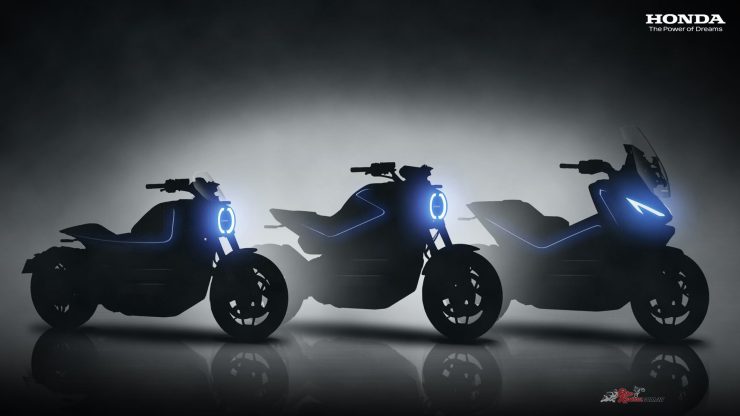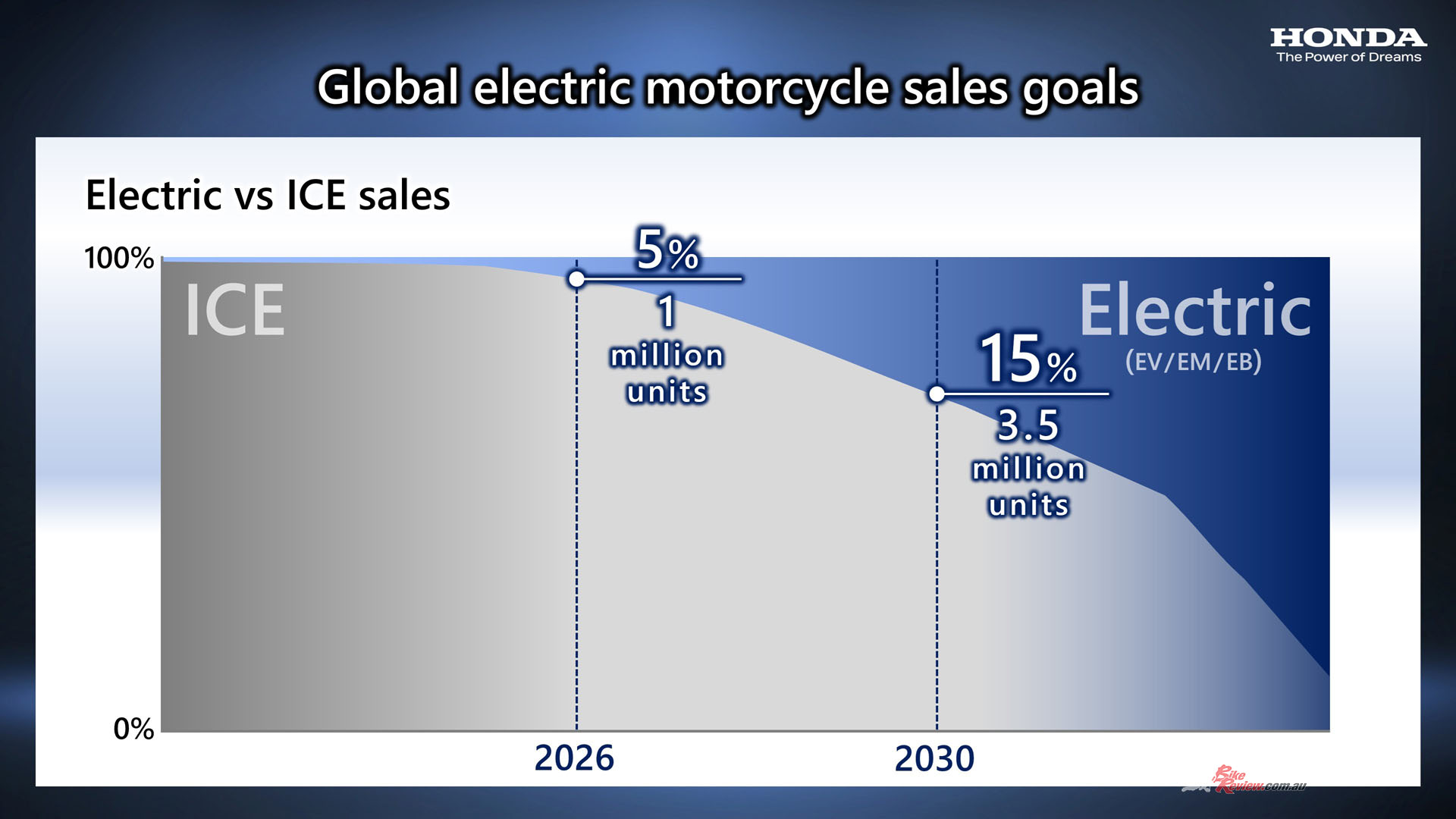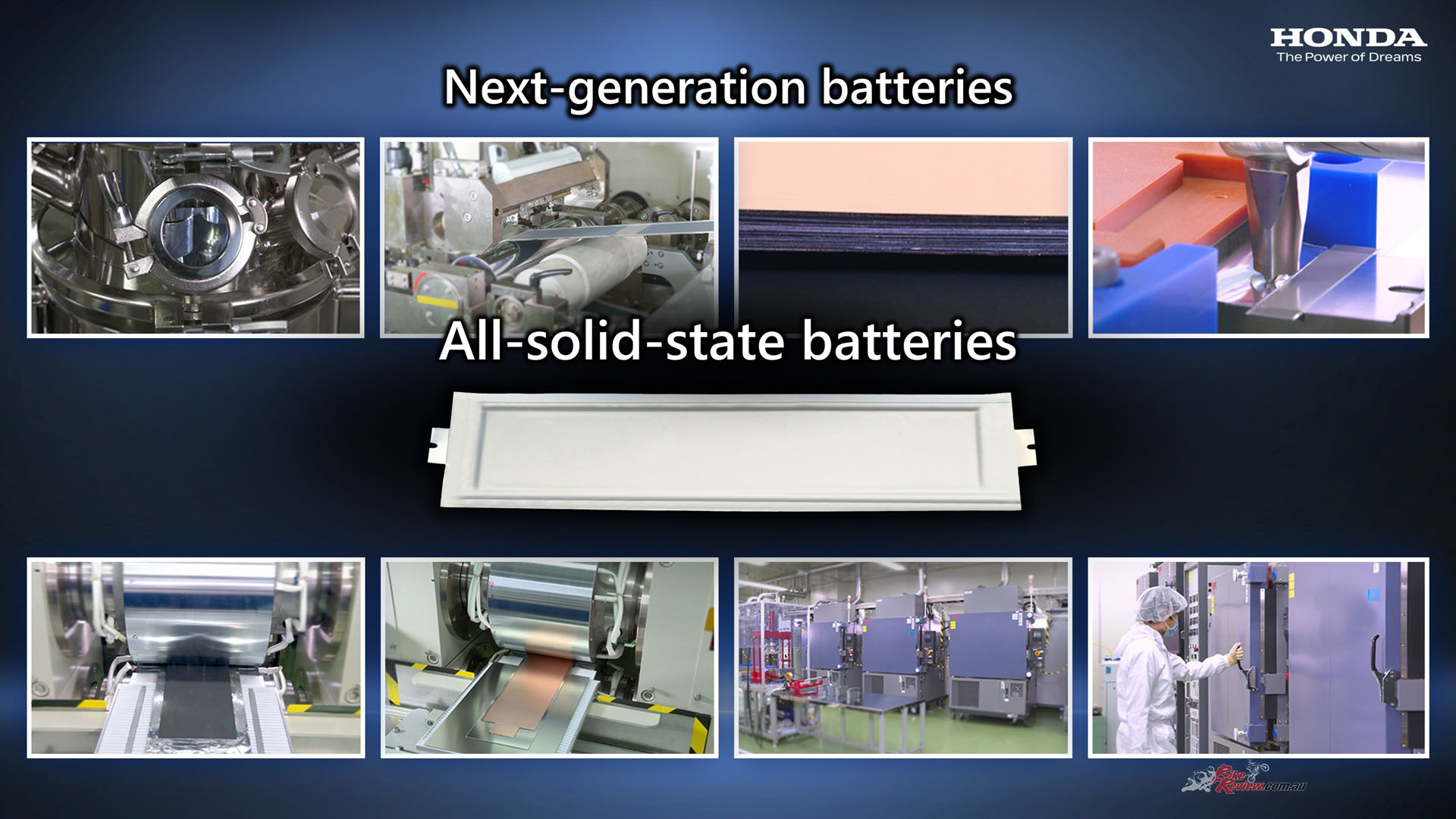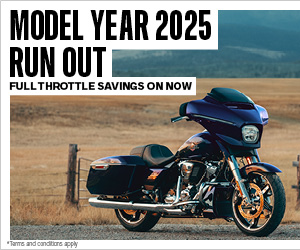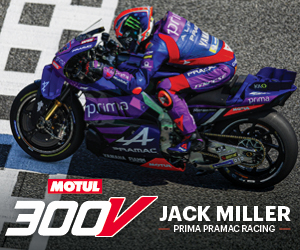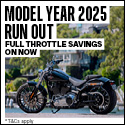Summary of 2023 Briefing on Honda Electric Motorcycles
Honda Motor Co. held a press briefing on electric motorcycle business initiatives, presented by Katsushi Inoue, Chief Officer in charge of Electrification Business Development Operations, and Daiki Mihara, Head of the Motorcycle and Power Products Electrification Business Development Unit.
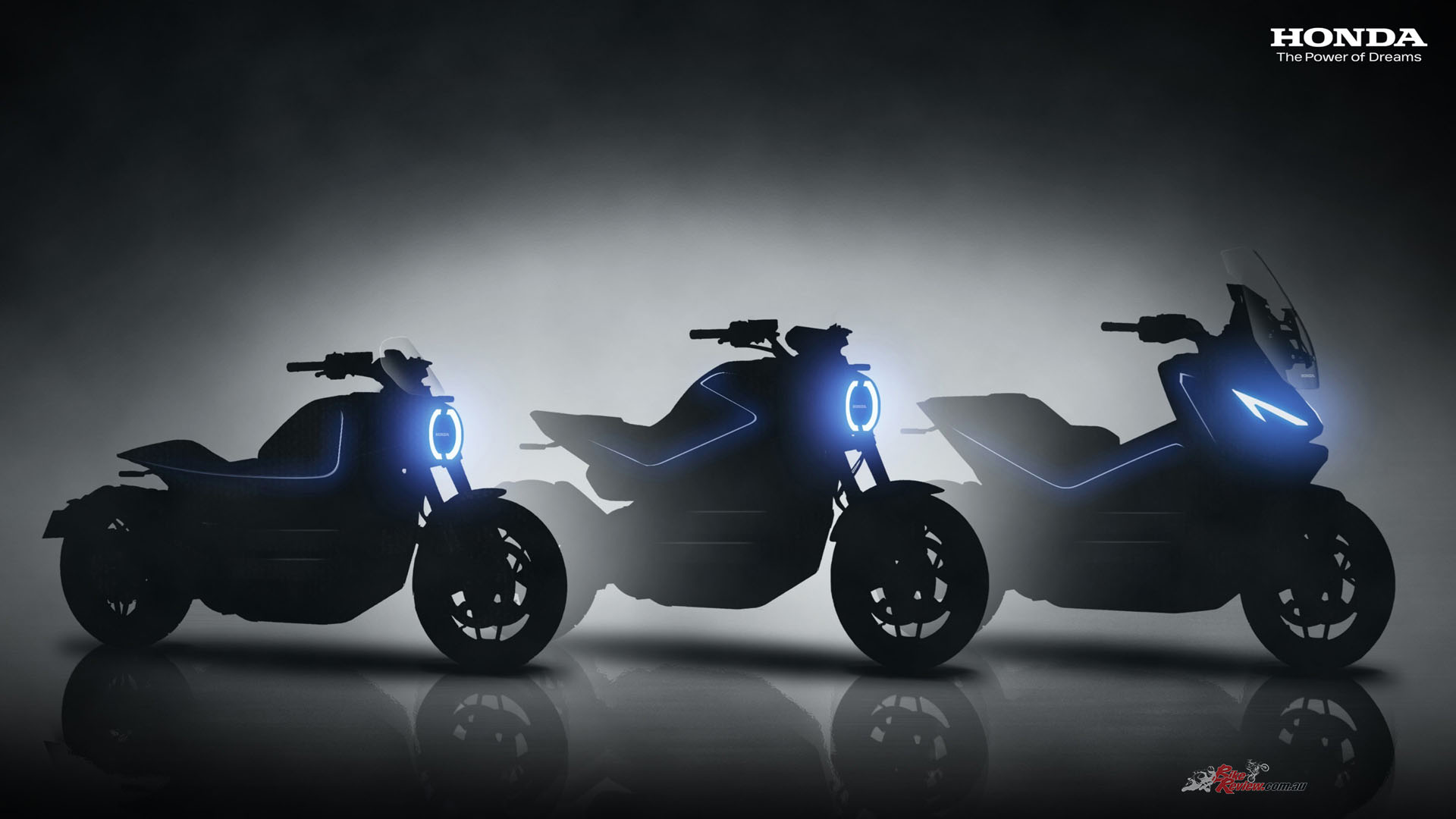
Honda have teased multiple new models. They plan to launch 10 or more models by 2025. Release: Honda Motor Co.
Key Points
- Global annual sales target of electric motorcycles for 2030 is now set at 4 million units, up 500,000 units from 3.5-million-unit target announced last year
- Honda will introduce 30 electric models globally by 2030
- Honda will further accelerate cost reduction initiatives and reduce the current cost of electric motorcycles by 50 per cent
- Honda is investing 100 billion yen over the current 5-year period from 2021 to 2025, and will invest an additional 400 billion yen over the 5-year period from 2026 to 2030, for a total investment of 500 billion yen over the 10-year period before the end of the decade
- Targets for operating profit margin for 2030 top 10 per cent for the entire motorcycle business and more than 5 per cent for electric motorcycle business, with more than 10 per cent for both the overall motorcycle business and electric motorcycle business in 2031 and beyond
Increasing 2030 global annual sales target of electric motorcycles to 4 million units
Honda revised its 2030 electric motorcycle annual sales target to 4 million units, up 500,000 units from what it announced last September, and will further accelerate its efforts to popularize electric motorcycles. This year, Honda began sales of three new EB (electric bicycle) models, including Honda Cub e:, in China, and the EM1e: electric scooter in Japan and Europe.
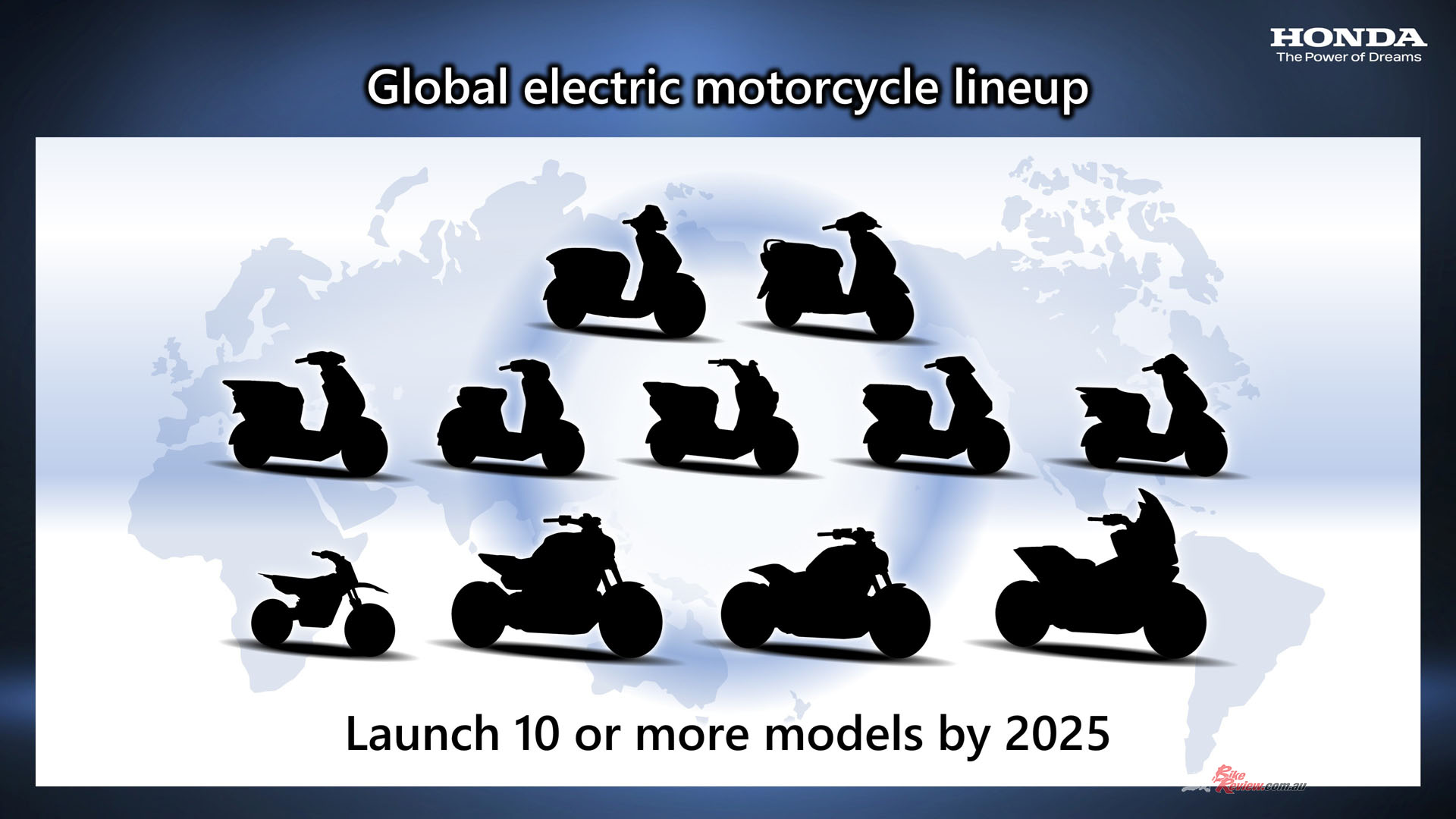 Moreover, Honda will introduce a new model globally in 2024, based on the SC e: Concept, recently exhibited at the JAPAN MOBILITY SHOW 2023, which will be followed by the global introductions of “FUN-oriented” models and plug-in electric models in 2025. In addition, Honda will introduce electric models in various categories such as super sports, naked, offroad, kids’ bikes and ATVs, accelerating its initiatives to build a full lineup of electric models by taking a proactive approach to introduce a total of more than 30 electric models by 2030.
Moreover, Honda will introduce a new model globally in 2024, based on the SC e: Concept, recently exhibited at the JAPAN MOBILITY SHOW 2023, which will be followed by the global introductions of “FUN-oriented” models and plug-in electric models in 2025. In addition, Honda will introduce electric models in various categories such as super sports, naked, offroad, kids’ bikes and ATVs, accelerating its initiatives to build a full lineup of electric models by taking a proactive approach to introduce a total of more than 30 electric models by 2030.
Further advancing motorcycle manufacturing with electrification
Honda already has strengths amassed through the development of ICE motorcycles, including know-how of platform sharing and excellence in the fundamental functionality of motorcycles, such as accelerating/cruising, turning and stopping. In addition to leveraging such existing strengths in the development and production of electric models, Honda will apply connectivity features, which will be significantly advanced through electrification, to offer electric motorcycles which will offer enhanced rider comfort and continue advancing even after the purchase.
In the form of a modular platform, the battery, power unit and chassis of electric motorcycles are modularized respectively, and by combining such modules, a wide range of variations can be developed. This will enable Honda to quickly and efficiently introduce a number of models that accommodate the diverse needs of its customers around the world. Moreover, this modularization will also generate a cost advantage.
Connectivity is one of the features that will be significantly advanced with electric motorcycles. Advanced connectivity will enable post-purchase software updates, including the addition of new functions, through over-the-air or other formats.
Honda will further advance the RoadSync connectivity service, offered since 2020, and equip new models to be launched in 2024 with an in-vehicle infotainment system that includes a suggestion-based navigation function, which will utilize collected information and provide the customers with information such as the location of charging stations.
For new models to be launched in 2026, Honda will install a telematics control unit (TCU) and further advance its connectivity service. In the future, data obtained and accumulated from both ICE and electric models will be utilized to understand the needs of customers based on the data of how those motorcycle models are being used. This will enable Honda to offer customer experiences that only Honda can offer, including functions to enable the customer to make new discoveries and achieve enhanced safety.
As for batteries, in addition to the ternary lithium-ion batteries used in electric models currently in the market, Honda has been developing lithium ferro-phosphate (LFP) batteries, planning to adopt them in 2025. Having a variety of batteries, each with different strengths in terms of output range and cost, will enable Honda to accommodate a wider range of use applications and expand the range of product variations. Moreover, in the mid- to long-term, Honda will explore the adoption of batteries with high energy density, with an eye toward the utilization of all-solid-state batteries currently under development.
New customer touchpoints in electric motorcycle business
In the electric motorcycle business, Honda will improve customer convenience by offering online sales that allow customers to purchase motorcycles without going to a dealer in person, while also providing the peace of mind to customers through services provided by Honda’s existing global sales network of more than 30,000 dealerships.
Moreover, as a new initiative, Honda will establish “Experience Centers” in major cities in India, ASEAN and other countries, where customers can experience the value Honda wants to offer through its electric motorcycles. By combining the strengths of existing dealerships and enhanced online services, Honda will offer more integrated online and offline customer touchpoints that provide customers with more convenience and peace of mind.
Reducing the cost of finished electric motorcycles by 50 per cent
By 2030, Honda will strive to reduce the cost of finished electric motorcycles by 50 per cent compared to the cost of currently available electric models powered by swappable batteries. To this end, Honda will adopt plug-in models, optimize battery cells, increase the efficiency of procurement and production through the adoption of common modules and increase production efficiency through various measures such as producing at factories dedicated to the production of electric models.
For the production of electric models, Honda will initially utilize its existing infrastructure for ICE models. However, in order to build a solid production system and capability and further increase its competitiveness toward the achievement of the 2030 sales target of 4 million units, Honda will begin the operation of dedicated electric motorcycle production plants, globally, beginning around 2027. Striving to realize a highly efficient production system at these dedicated plants, the length of assembly lines will be reduced by approximately 40 per cent compared to conventional lines through the adoption of new technologies such as modularization technology. Each dedicated plant will represent an investment of 50 billion yen, with an annual production capacity of 1 million units.
As for procurement, the current method of purchasing by functional components will be revised so that procurement can be done by component parts in the future. In addition, Honda will strive to reduce the cost of materials and logistics to increase the competitiveness of its procurement system and capability.
Investing approximately 500 billion yen over a 10-year period to maximize sales of electric models
For the electrification of its motorcycles, Honda is investing 100 billion yen over the 5-year period from 2021 to 2025, and will invest an additional 400 billion yen over the 5-year period from 2026 to 2030, to total approximately 500 billion yen over 10 years before the end of the decade.
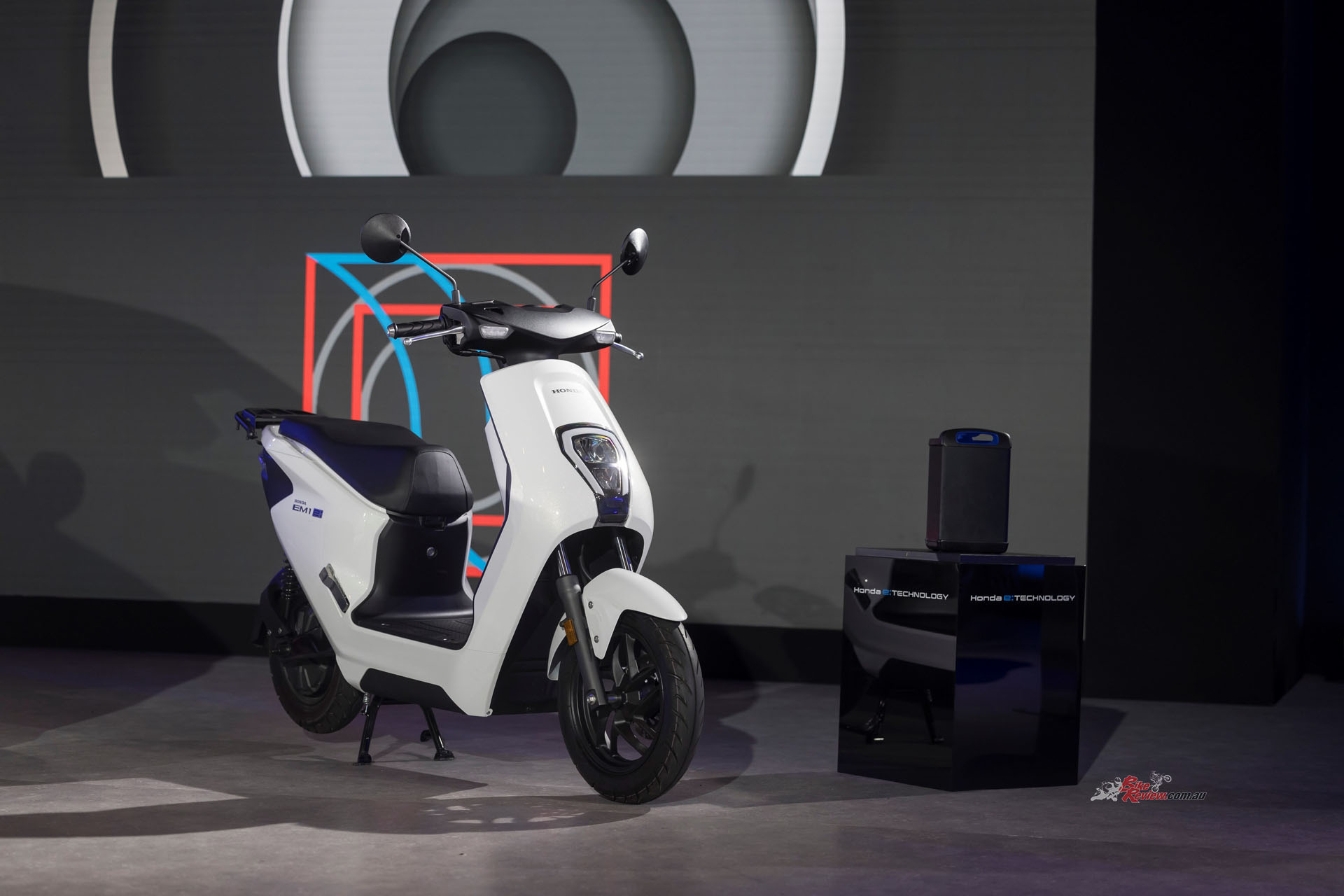
For the electrification of its motorcycles, Honda is investing 100 billion yen over the 5-year period from 2021 to 2025.
In 2031 and beyond, Honda will enhance its competitiveness by investing in the establishment of a production system and capability on a global basis and further advance software technologies to maximize the sales of electric motorcycles.
Aiming for more than 10 per cent operating profit margin for electric motorcycle business in 2031 and beyond
Honda will strive to achieve targets for 2030 operating profit margin of more than 5 per cent for electric motorcycle business and more than 10 per cent for the entire motorcycle business. For 2031 and beyond, Honda will aim to achieve an operating profit margin of more than 10 per cent for electric motorcycle business and further increase the total profit amount as well.
Honda will build a highly profitable structure for its electric motorcycle business, as it has with its current ICE motorcycle business, and increase profits for motorcycle business as a whole.
Editor’s Note: If you are reading this article on any website other than BikeReview.com.au, please report it to BikeReview via our contact page, as it has been stolen or re-published without authority.


